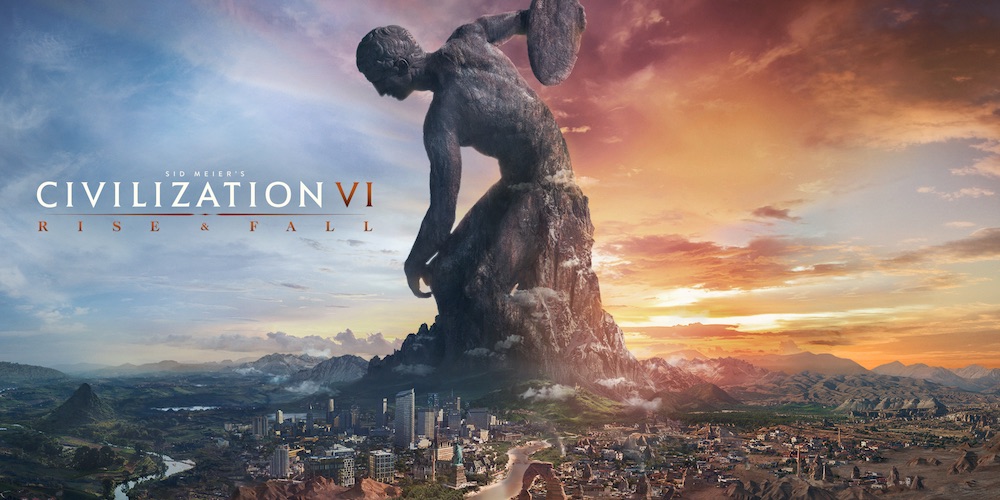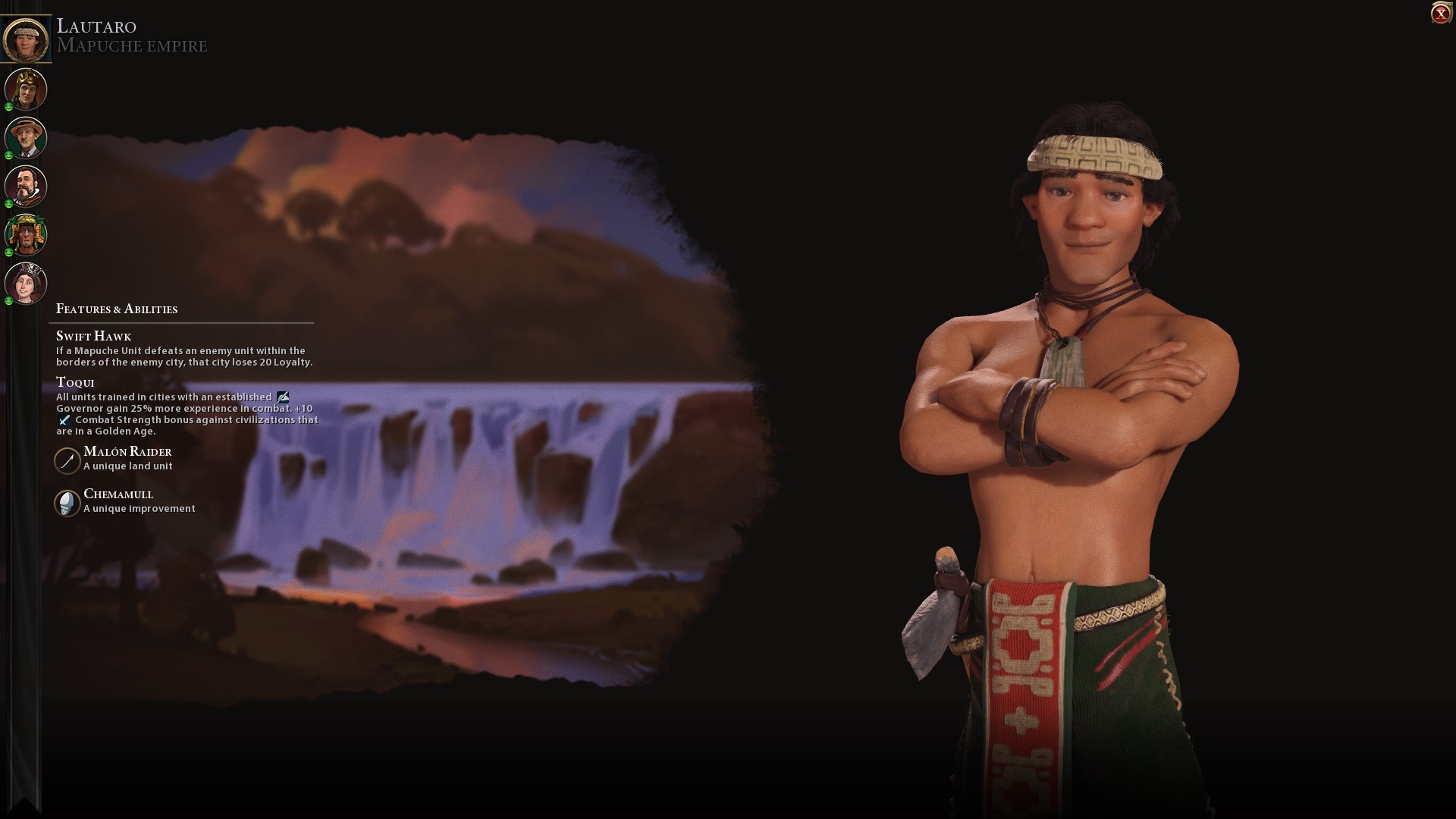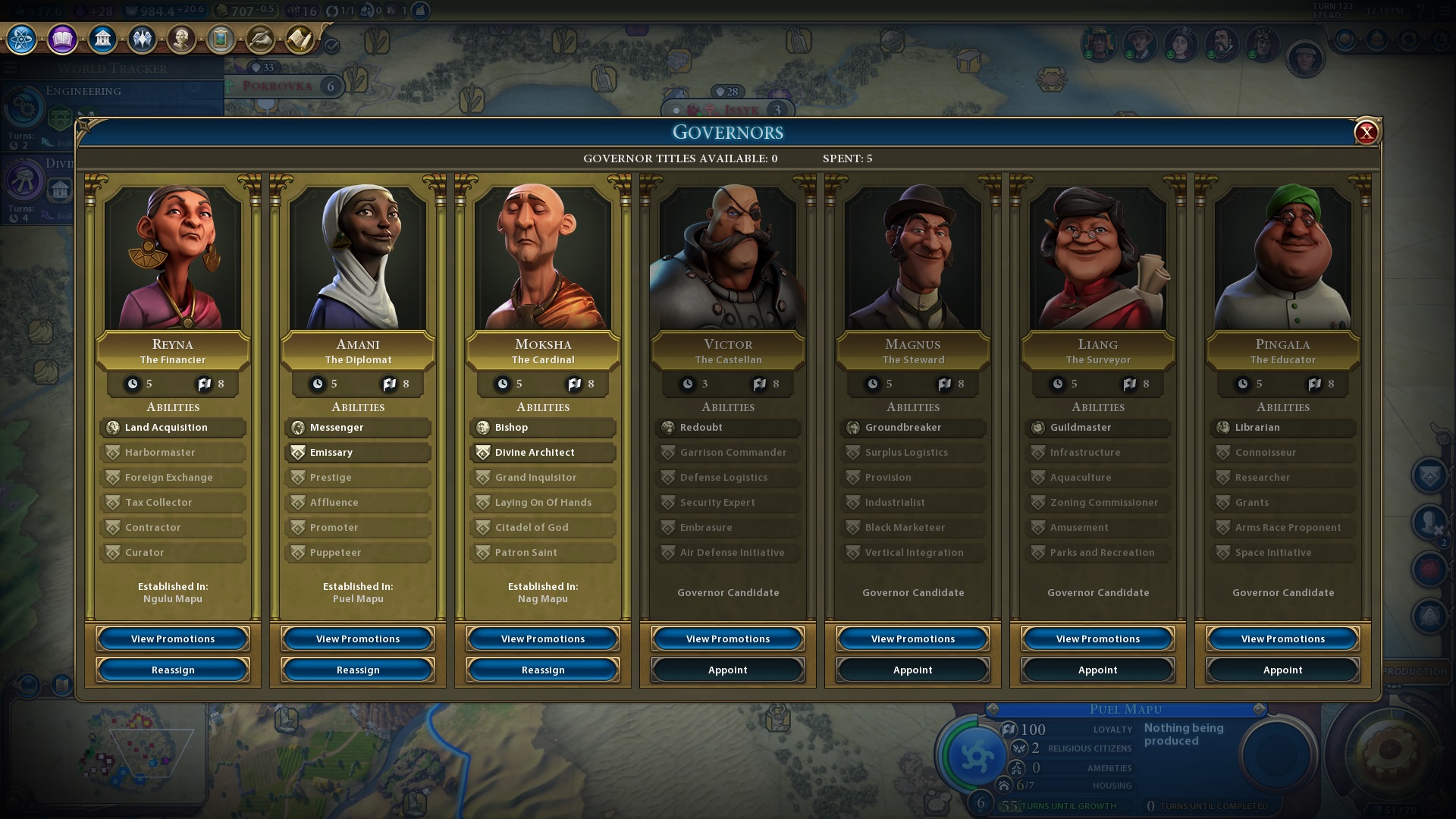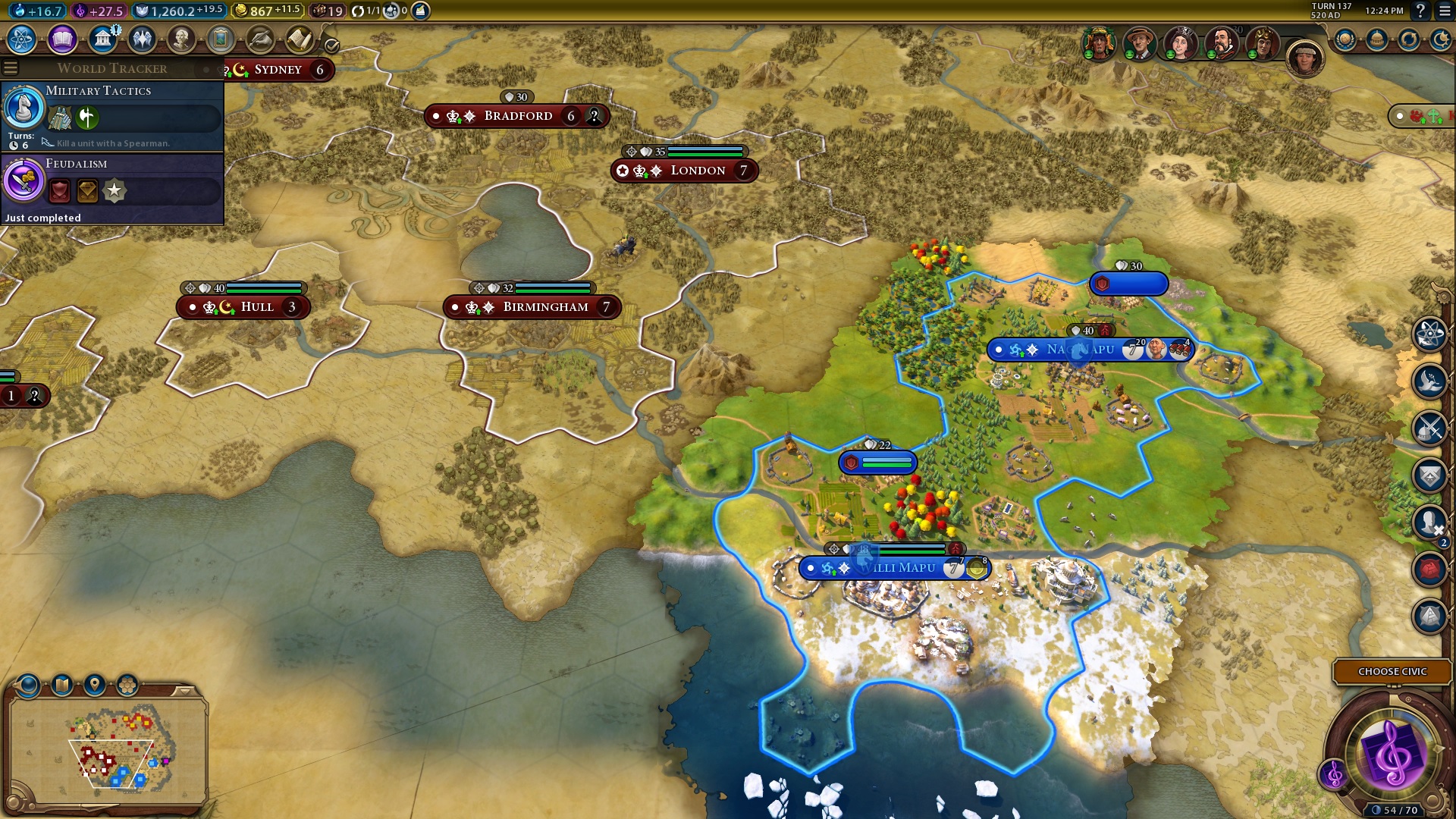
In all eyes but those of purists – you know, the forum dwellers who still support Civ V – Civilization VI emerged in 2016 as the premier 4X title on the market. For those seeking to explore, expand, exploit and exterminate, Sid Meier’s latest instalment is the best looking, most streamlined and least confusing option out there. Note, though, that I didn’t say “feature rich.” The chief complaint against Civ VI has been that it stripped away too much of the depth and complexity of its predecessor’s two expansions and left behind an experience that, while optimised, is shallow and simplistic. The “Rise and Fall” expansion serves to address those complaints by adding several new mechanics that enrich every turn played in Civ VI with additional layers of strategy and forethought.

First come the expected changes, namely the nine new leaders from eight new civilizations that introduce a swathe of refreshing racial bonuses, unique buildings and units. While it’s nice to have new races included, jumping between civs gives only a small change, and this doesn’t constitute a great deal of actual content. It’s great to see some of these civs playing nicely into the new Loyalty mechanic, which we’ll get to shortly, but it’s frustrating that there are still none geared strictly toward the oft-neglected economic bonuses. If your vision of global domination involves controlling all the gold, Rome and Egypt remain your best bets.
The aforementioned Loyalty mechanic functions in much the same way as Religious Pressure, in that each city under your control will exert constant political pressure on the cities around it, based on proximity and other gameplay factors. Allow too much external influence and your cities will declare independence, or worse yet, align with another civ. By the same token, though, it will enable you to destabilise and control enemy cities. Loyalty is a subtle mechanic, and it won’t be your sole focus at any point in a game, but it does demand an extra layer of strategy when expanding into new territory and placing your cities. Intercontinental expansions, in particular, have become much riskier now that foreign cities are cut off from the influence of the motherland, and are therefore more susceptible to enemy corruption.

The other addition to city management comes in the form of Governors; powerful characters with unique specialisations that offer bonuses to any city they inhabit. Some will bring economic bonuses, others enhance defence or building capabilities, but all of them will help to bolster, you guessed it, Loyalty. Combined, Loyalty and Governors offer a much-needed boost of complexity and control to your city management. They aren’t total overhauls of the existing systems, but at least there’s more to it now than settling on top of iron and horses and following an optimal build order.
The real meat of the expansion comes in the form of Timelines, Historical Moments and Ages. Over your journey through time, you will reach milestones that shape the world’s future and contribute to your civ’s unique story. These Historical Moments will appear in your Timeline, which functions as a running history of your nation’s growth, and include anything from building a wonder to defeating an enemy, founding a religion, developing flight or being the first to circumnavigate the globe. For each Historical Moment, you will accrue Era Points. A surplus of these will usher in a Golden Age of growth and prosperity for your civ, while a deficit will bring about the struggle of a Dark Age. Ages, on the other hand, are an incredibly powerful mechanic that will bring a unique form to every game of Civ VI from now on. If you play as Rome, for example, you’ll likely reach a Golden Age in the early stages of the game, only to be overtaken by the likes of America and Japan who become powerhouses by the Modern era.

In that every civ has unique units, buildings and bonuses and will, therefore, reach their peak of productivity at different times, the ebb and flow of dominance that already exists is amplified by the additional bonus of these Ages. One issue is that the triggers of Historical Moments are vague and seem almost random at times. You’re given no indication of your civ’s unique triggers, or the universal triggers available to every civ, so you’re often in need of those last few points to escape a Dark Age but have no clear path to attaining them. Some knowledge of what exactly constitutes a Historic Moment would allow for better planning and utilisation of this powerful mechanic.
The Rise and Fall expansion seems to focus mostly on the internal management of your civ but doesn’t completely neglect diplomatic relations. Change on this front are two-fold; Enhance Alliances and Emergencies. Enhanced Alliances are just that; alliances specialised to focus on Research, Culture, Military, Religion or Economy. Each of these alliances can be enhanced to offer increasing benefits over time, but this is an extremely subtle change to the Alliance system, and its effects aren’t felt until an alliance matures in the late game. Emergencies are triggered by major events such as a civ capturing a City State, detonating a nuke, betraying an alliance or simply gaining too great a lead. These events offer the other civs an opportunity to band together against their common foe, and result in huge bonuses for whichever side is victorious in the conflict. While interesting on paper, these Emergencies rarely play out with much drama and are often far too large a risk for the offered reward. It’s possible that both Emergencies and Enhanced Alliances will be powerful in multiplayer games, but in single player, they’re both too subtle and situational to have a grand impact on the overall gameplay.

There’s no doubt that Civilization VI: Rise and Fall is a superior experience to the base game. Having said that, these mostly subtle changes add only a fine layer to the gameplay rather than overhauling the experience or providing a large amount of new content. It feels more like a major patch than an expansion, and the price tag feels a little steep for such minimal change. If you’ve decided not to try Civ VI in the past, this won’t convert you. However, if you’re a diehard, you’ll probably want to suck it up and shell out the money for this wisp of fresh air in your Civ runs.











